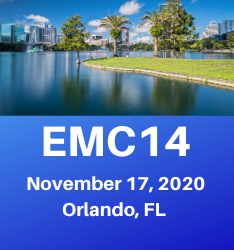|
|
|
|
|
State Opens Docket To Consider Study Of Opt-Out Municipal Aggregation Sought By Clean Energy Group
The following story is brought free of charge to readers by EC Infosystems, the exclusive EDI provider of EnergyChoiceMatters.com
The Connecticut PURA has assigned 20-05-13 for "PURA Study of Community Choice Aggregation," after a petition from a representative of clean energy groups, for such a study
Peter Millman, identified as with People's Actions for Clean Energy and Eastern CT Green Action, submitted a letter to PURA asking, "I would respectfully request that the Public Utility Regulatory Authority conduct a study to
determine the potential opportunities and challenges of Community Choice Aggregation (CCA)
for the state of Connecticut."
"If it is possible, the study would be most useful if completed by
December of 2020, so that its findings can be available for the 2021 CT General Assembly
session," Millman wrote
Although Millman did not use the term opt-out, examples of municipal aggregation cited by Millman were solely states with opt-out municipal aggregation (NJ, NY, RI, MA, and NH).
Millman wrote, "While all states that have adopted CCA have something to offer Connecticut, in my opinion New
Hampshire could be the most useful model. As the newest CCA state and a regional neighbor,
its legislation may best reflect the accumulated experience of other states, as understood by the
CCA experts who designed New Hampshire’s program."
Millman wrote, "Connecticut is interested in CCA. As of this writing, New Haven, Middletown, Simsbury,
Mansfield and Windham have all passed resolutions supporting CCA, asking the legislature to
pass enabling legislation. About 15 legislators want to see a CCA bill enacted. In addition, more
than 20 CT organizations, including the CT League of Conservation Voters, the Acadia Center,
Peoples Actions for Clean Energy, Operation Fuel, and the CT Roundtable for Climate and Jobs
support CCA."
Millman said that PURA's review should include the questions below and ultimately should attempt to answer this question: Would the potential benefits of CCA
outweigh the potential challenges?
Millman's proposed questions for the review are:
Forms of CCA
1. What are the different models or versions of CCA that Connecticut might adopt?
2. Should CCA enabling legislation dictate a particular form for CCA or should it be
structured to allow evolution in CCA services, activities, and governance?
3. What is the appropriate process for approval of CCA on behalf of customers within a
jurisdiction?
Potential Benefits
4. Can CCAs generally procure electricity for prices lower than or equal to incumbent
utilities?
5. Can CCAs help to reduce energy use and shape the demand profile in their territories?
6. Would there be a benefit to having investor owned utilities compete with CCAs for
energy efficiency funds?
7. Can CCAs help to promote more clean energy development?
8. Will CCA facilitate the adoption of distributed energy resources, including rooftop solar,
community solar, battery storage, and demand response?
9. Can CCA help accelerate the modernization of a more decentralized, resilient, two-way
grid?
10. Can the activities of CCAs benefit LMI communities?
Potential Problems
11. Is there evidence that CCAs cause ratepayers in non-CCA municipalities to pay higher
electricity rates due to disruptions of the standard service procurement process, for
example, by adding uncertainty into the process? If so, what would be the magnitude of
these higher rates and how could they be minimized?
12. Is there evidence that suburban municipalities that form CCAs cause urban ratepayers to
pay more for their electricity? If so, what would be the magnitude of these higher rates
and how could they be minimized?
Regulatory Issues
13. How much regulatory review should there be of the process of a municipality forming a
CCA? After a CCA is created, how much regulatory review should there be on an
ongoing basis?
14. Should an investor-owned utility that remains the sole provider of distribution,
transmission, and other services traditionally provided by the utility, such as metering
and billing, also be the provider of last resort for supplying electricity to customers who
opt out of CCA?
15. What minimum requirements should apply to independent power producers and power
marketers who want to supply energy to a CCA?
16. What, if any, data-sharing requirements should be imposed on investor-owned electric
utilities to help ensure that a CCA or a jurisdiction investigating whether to form or join a
CCA can reasonably evaluate its financial and technical viability and implement its CCA
program?
ADVERTISEMENT Copyright 2010-20 Energy Choice Matters. If you wish to share this story, please
email or post the website link; unauthorized copying, retransmission, or republication
prohibited.
June 1, 2020
Email This Story
Copyright 2010-20 EnergyChoiceMatters.com
Reporting by Paul Ring • ring@energychoicematters.com
NEW Jobs on RetailEnergyJobs.com:
• NEW! --
Senior Manager, Energy Market Research & Analytics -- Houston
• NEW! --
Pricing Analyst -- Houston
• NEW! -- Senior Energy Intelligence Analyst -- Energy Procurement
• NEW! -- Channel Partner Sales Manager -- Retail Supplier
|
|
|
|








